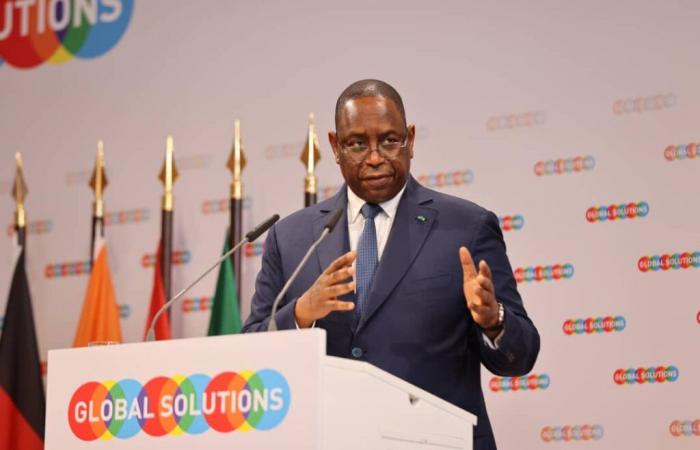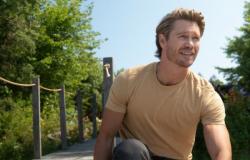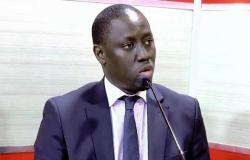
Here is his speech …,
Ladies, gentlemen,
Dear friends,
I would first like to thank our friend Christian Kastrop for his kind invitation and for the friendly welcome that was reserved for me.
I congratulate Global Solutions for the organization of this summit. In a world plagued by tensions and uncertainties, it is both opportune and beneficial to create dialogue spaces to think together the possible ways of leaving crisis.
Faced with emergencies, the course of history is once again troubled. The multilateral system, born in the rubble of war to promote peace, shared progress and solidarity between nations, shows its limits today. He struggles to offer concerted responses to contemporary challenges.
Indeed, multilateral instances seem frozen while conflicts, old and new, persist, some more disastrous than others; terrorist threats remain whole; Global warming increases despite the successful COPs; And a major trade war is added to an economic and financial crisis that the world was already struggling to get up.
In this context of deep crises and changes, Africa continues to deal with several challenges. I will limit myself here to four major challenges.
First challenge: peace, security and stability.
In addition to persistent conflicting situations, terrorism tends to become endemic on the continent, especially in the Sahel. It must be said that for years, Africa has continued to alert to the fact that conventional peacekeeping operations are not adapted to the fight against terrorism, for lack of adequate terms and means. This is evidenced by the precipitous end of certain operations in anger and misunderstanding.
This is why we have always pleaded for more robust mandates and better calibrated means, to fight terrorism as part of the African peace and security architecture, with the logistical and financial support of the United Nations and the partner countries.
It is at this price that we can defeat terrorism, or at least significantly reduce its means of action.
It is about our common interest, because the persistence of terrorism in Africa constitutes a global threat which is the responsibility of the Security Council, guarantor of the collective security system.
Second challenge: economic development.
With its 30 million km², demographic weight and mining, water, energetic and property resources (60% of the planet’s unfortunate arable land), Africa has the necessary potential to support its development efforts and contribute to global growth.
This certainly requires wise public policies, but also a fairer and more equitable global economic order.
The dynamics of development are slow when the tax is not paid where wealth is created, due to abusive tax leave; And when the ratings of evaluation agencies are biased by their increasingly disputed criteria and methodologies. In Africa, the perception of investment risk is often greater than the real risk, which adds the cost of credit, due to particularly high insurance premiums.
My point of view is that it is time to recondate international cooperation on reinvented paradigms, in particular:
International tax reform and evaluation agencies’ rating methods; And the relaxation of OECD rules in order to facilitate access to developing countries in export credit, longer maturity conditions and sustainable interest rates.
In my opinion, Africa today needs more fair rules and fair partnerships than public aid to development for limited resources and ineffective mechanisms. For example, just for infrastructure, the African Development Bank estimates the needs of Africa between 130 and $ 170 billion per year.
Admittedly, it is necessary to salute and recognize at their fair value the efforts and the achievements made within the framework of traditional partnerships.
At the same time, Africa will continue to open up to new partnerships, without exclusivity or exclusion, to diversify its prospects for growth and economic and social development.
This is all this, added to the gradual implementation of the African continental free trade area, which will help establish a new doctrine of cooperation based on an ethics of shared values, concerted solutions, and mutually beneficial interests, without ideological or socio-cultural condition.
Third challenge: the energy transition in the context of global warming. According to the principle of common but differentiated responsibility, Africa is fully engaged in the fight against global warming.
Everywhere on the continent, sober carbon projects and resilients to global warming are born.
But the continent which pollutes the least cannot be forced to choose between development and environmental protection, or to go into debt to finance the costs of adaptation alone.
It is therefore urgent to mobilize the financial resources necessary for climate action, in particular within the framework of partnerships for a fair energy transition.
In addition, for equity and justice, there is a need to avoid unilateral decisions like that of COP 26 in Glasgow prohibiting funding abroad from fossil energy sources, even little polluting such as gas, while certain industrialized countries continue to use much more polluting energies such as coal.
I remind you that the African Union, the African Development Bank and the World Center for Adaptation launched in 2021 the Acceleration Program for Adaptation in Africa (AAAP).
This ambitious initiative aims to mobilize $ 25 billion to strengthen African climate resilience in key fields, in particular: agriculture, infrastructure, youth and entrepreneurship, as well as finance and governance.
As president of the supervisory board of the World Center for Adaptation, I appeal to bilateral and multilateral partners to support the second phase of the AAAP initiative over the period 2026-2030.
Fourth challenge, finally, the reform of global governance.
The basis of the basis of multilateralism is to promote between countries to the unequal forces confident, united and inclusive collaboration.
In this spirit, it is fair to recognize the services that the United Nations system and that of Bretton Woods have returned to the member states.
But 80 years after its creation, post-war multilateralism is about to become obsolete, because it does not meet the realities and needs of its time. For more than three -quarters of the member countries, there is a source of inequality there which feeds frustrations and the dispute of the system.
The gradual enlargement of the BRICS in global south appears as a symptom illustrating the discomfort of a system which runs the risk of its fragmentation if it is not reformed.
It is not desirable to get there. Then, wisdom commands to refound the global political, economic and financial governance, to make it more representative of the diversity of today’s world.
The G20 showed the way by admitting the African Union as a member automatically, on the initiative of Senegal during its presidency of the African Union.
The granting of a third seat to Africa to the IMF’s board of directors is also in the right direction of history.
It is important that other bodies, such as the Security Council and the World Bank follow these examples, in order to help the advent of a more inclusive, more legitimate and more efficient multilateralism.
Ladies, gentlemen, dear friends,
In a world shaken by so many turbulence, we must not give up hope. Not an incantatory hope, but a worked hope; A acting hope, nourished by the courage of dialogue, the strength of cooperation and faith in our common humanity.
At the time of the global challenges, only a new lucid and humanist start will allow us to re -assembly fractures, appease anger and tensions, and promote solidarity collaboration, based on our common values and respect for our differences.
Thank you for your kind attention!
As a reminder, created in 2017, Global Solutions Initiative (GSI) is an international network of think tank of researchers, political decision -makers and civil society leaders aimed at offering concrete political solutions to the major world challenges, in particular in the fields of climate, digital transformation, global governance and sustainable development. • Main activities: • Organization of the Global Solutions Summit, an annual forum bringing together international experts.
• Publication of analysis notes
intended for decision -makers of the G20 and the G7. • Animation of communities such as the Young Global Changers and the Council for Global Problem-Solving.
GSI sits in Berlin, Germany.
The think tank is led by Christian Kastrop, economist of German nationality, former secretary of state for digital society and politics
consumers at the German Federal Ministry of Justice and Consumer Protection.






